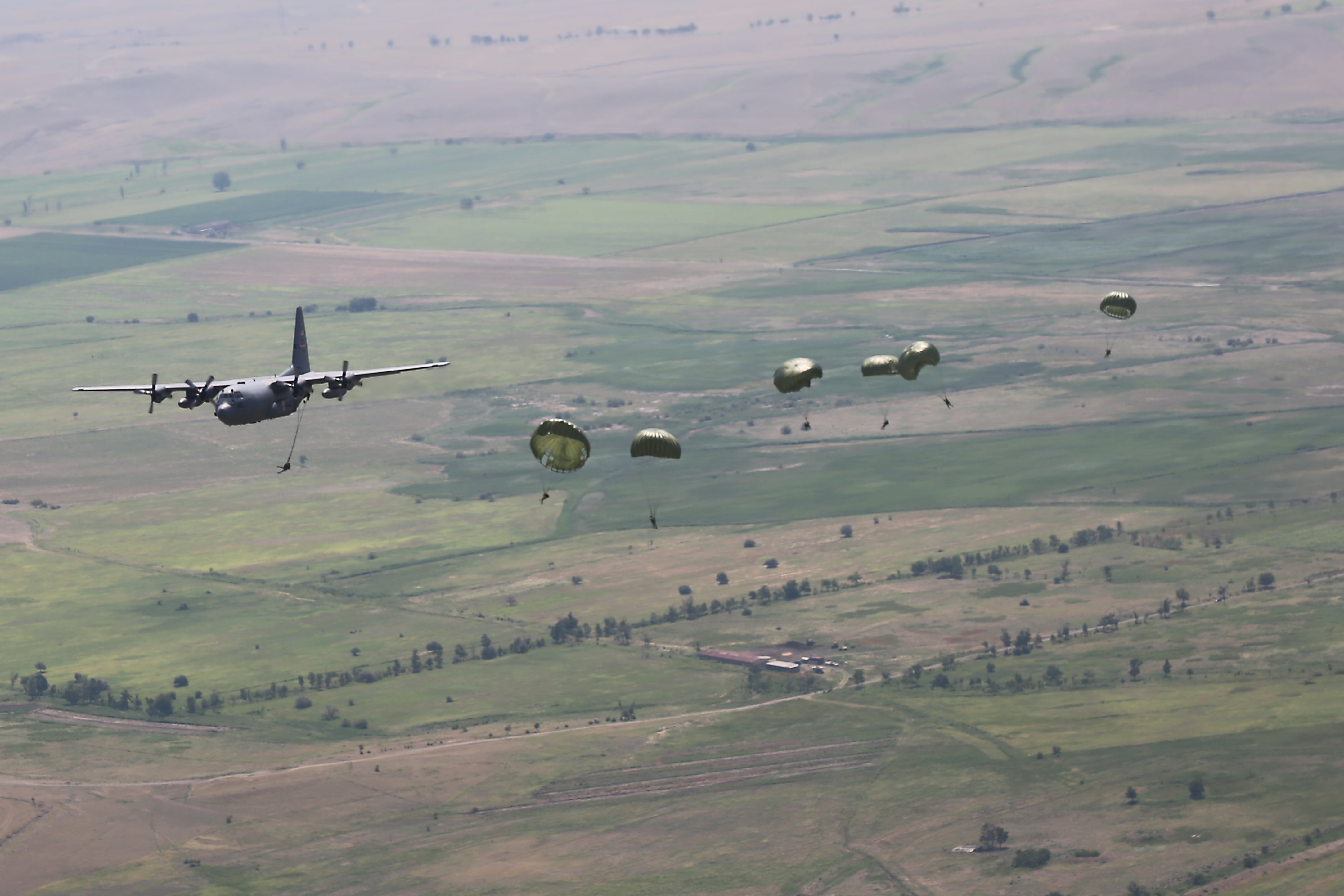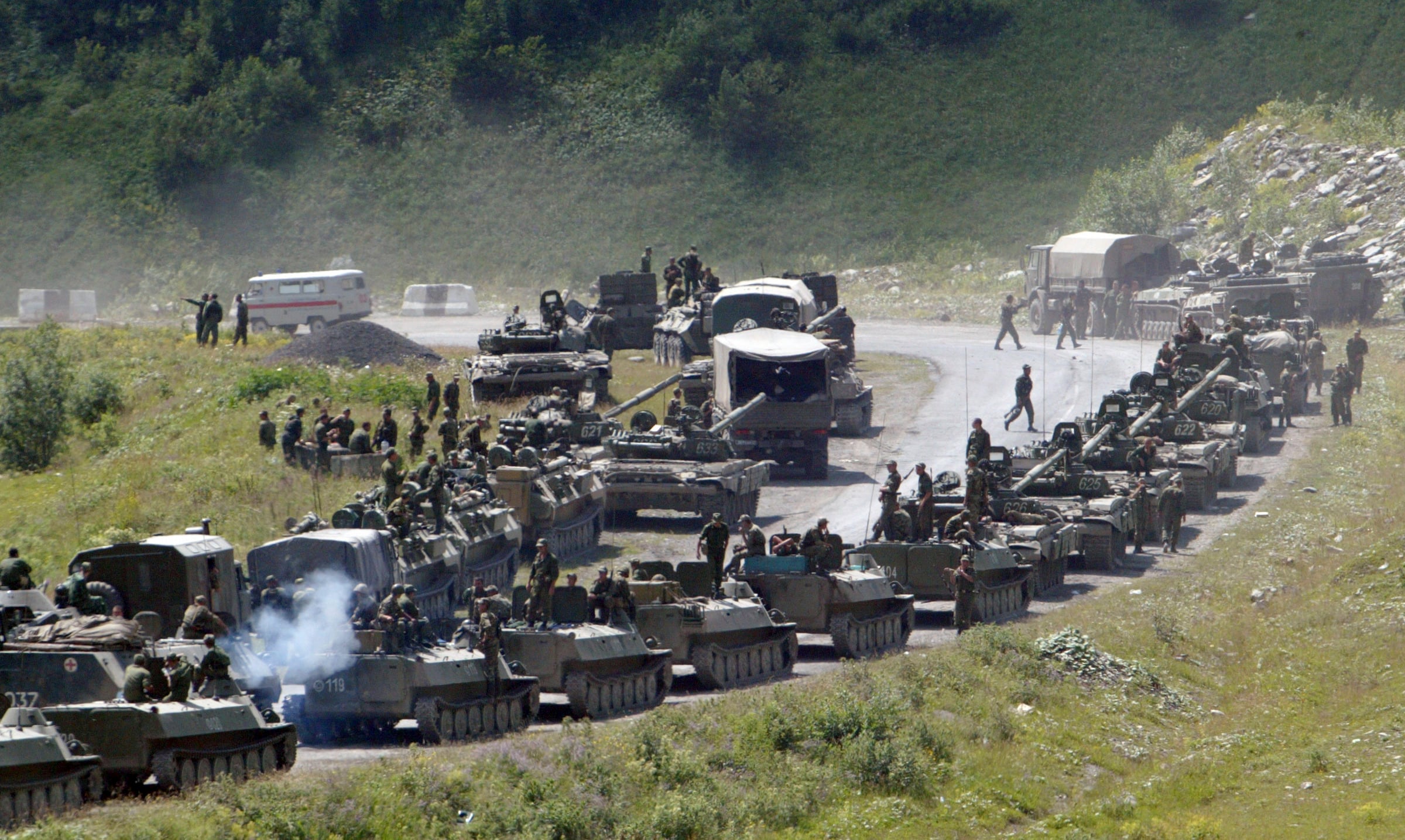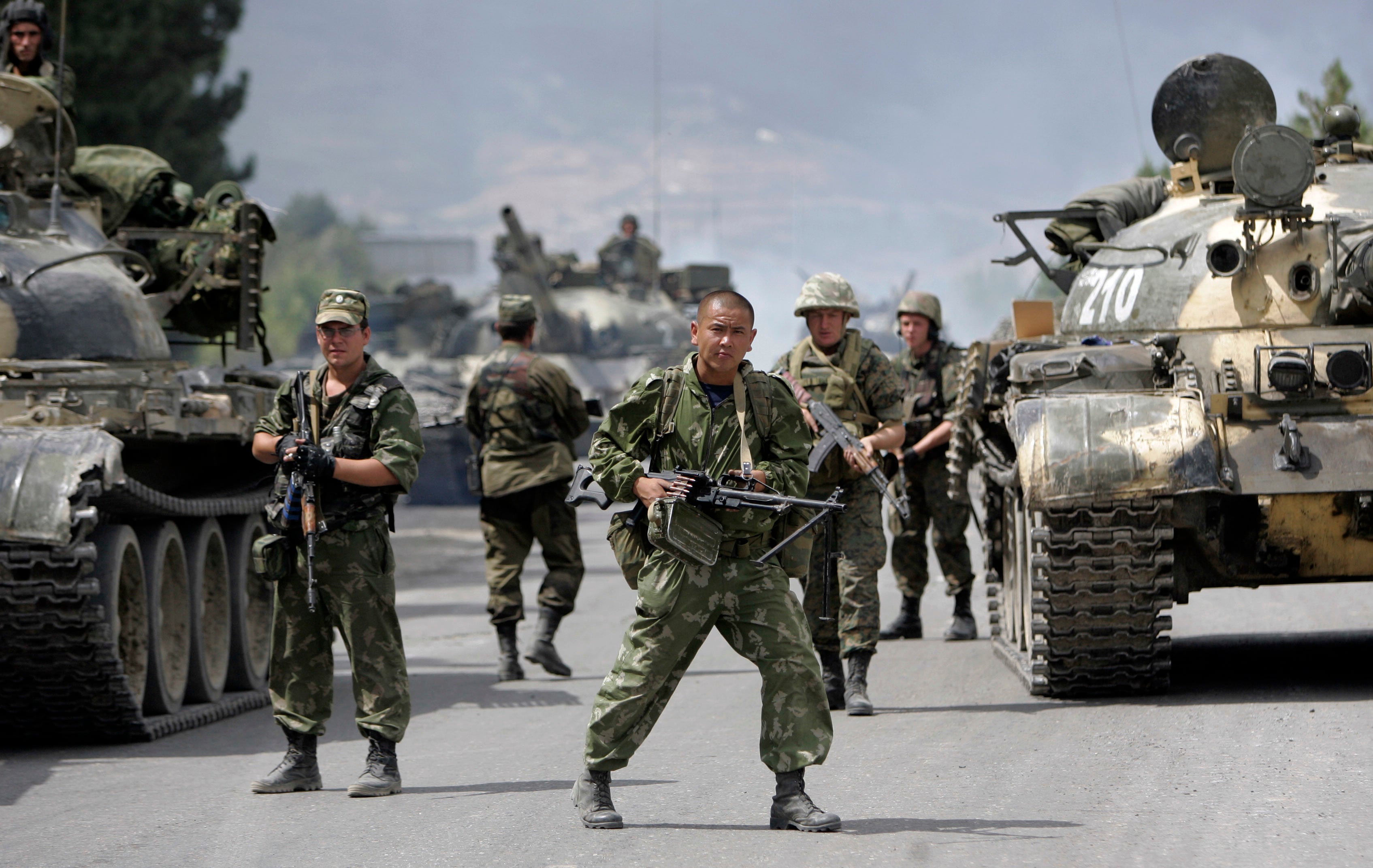MOSCOW — An attempt by NATO to incorporate the former Soviet republic of Georgia could trigger a new, “horrible” conflict, Russia’s prime minister said Tuesday in a stern warning to the West marking 10 years since the Russia-Georgia war.
Dmitry Medvedev said in an interview with the Kommersant daily broadcast by Russian state television that NATO’s plans to eventually offer membership to Georgia are “absolutely irresponsible” and a “threat to peace.”
Medvedev was Russia’s president during the August 2008 war, which erupted when Georgian troops tried unsuccessfully to regain control over the Moscow-backed breakaway province of South Ossetia and Russia sent troops that routed the Georgian military in five days of fighting.
The Russian army was poised to advance on the Georgian capital, but Medvedev rolled it back, accepting a truce mediated by the European Union.
RELATED

After the war, Georgia entirely lost control of both South Ossetia and another separatist region, Abkhazia. Russia has strengthened its military presence in both regions and recognized them as independent states, but only a few countries have followed suit.
The European Union on Tuesday reiterated its "firm support to the sovereignty and territorial integrity of Georgia within its internationally recognized borders" and lamented the Russian military presence in Abkhazia and South Ossetia.
In a show of support for Georgia, foreign ministers of Latvia, Lithuania and Poland, and a Cabinet member from Ukraine, visited Tbilisi Tuesday, urging Russia to withdraw its troops from Abkhazia and South Ossetia. "Nowadays no country can change the borders of another country by force," said Polish Foreign Minister Jacek Czaputowicz.

Russian-Georgian relations have improved since the war, but the issue of the breakaway regions remains, preventing the full normalization of ties.
Medvedev warned that NATO's attempt to embrace Georgia could have catastrophic consequences.
"There is an unresolved territorial conflict ... and would they bring such a country into the military alliance?" he said. "Do they understand the possible implications? It could provoke a horrible conflict."
Medvedev pointed to Moscow's recognition of independence of Abkhazia and South Ossetia and the Russian military bases there, saying that any attempt to change the status quo could lead to "extremely grave consequences." ''I hope that NATO's leadership will be smart enough not to take any steps in that direction," he said.
The Russian prime minister described NATO's eastward expansion as a major security threat to Russia.
“Whatever our colleagues from the alliance may say, NATO countries see Russia as a potential enemy,” he said. “We can’t help getting worried when the circle around our country keeps narrowing as more and more countries join NATO. NATO’s expansion clearly poses a threat to the Russian Federation.”





